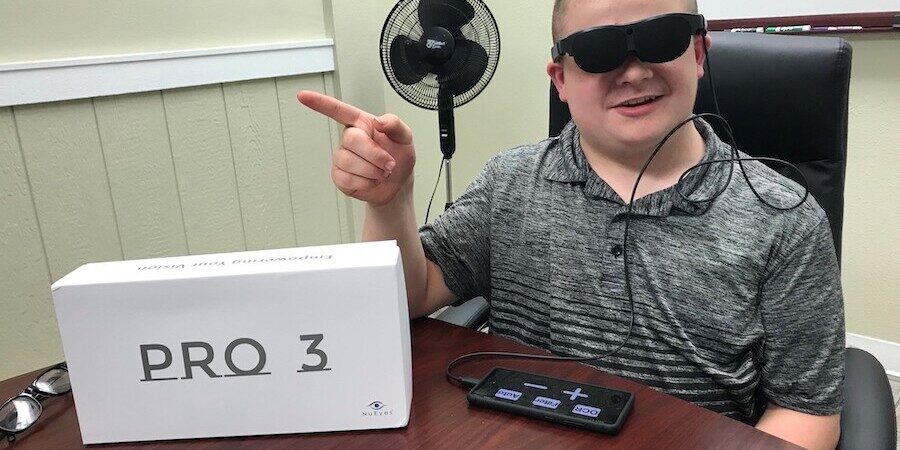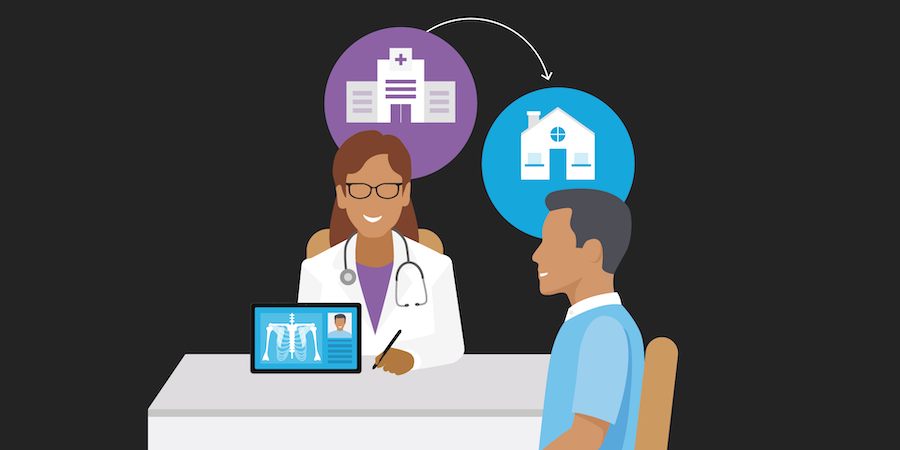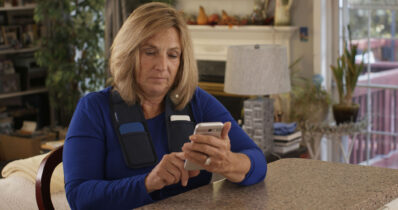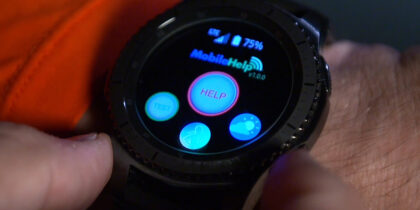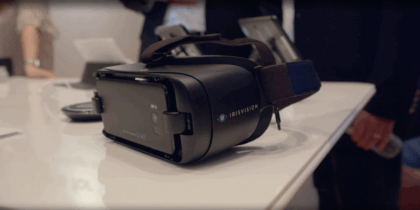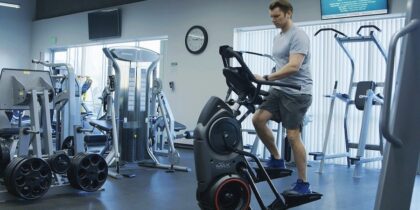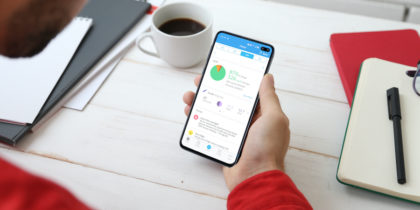Watching a new movie, reading a favorite book, seeing a loved one smile. Most people take these simple delights for granted, but not the one million American veterans with low vision.
James, an Army vet with severe low vision due to injuries he sustained while serving in the Gulf War, thought he would never see his granddaughter again — and he had never seen his wife’s face at all. By the time they met at a Veterans Administration (VA) Blind Rehabilitation clinic, James could only see lights and shadows. Then he was introduced to NuEyes, augmented reality (AR) smart glasses technology that leverages what little vision he has left and fills in the gaps, giving him his first clear look at the woman he loves.
NuEyes smart glasses are now used across a variety of industries, for everything from remote medicine to enterprise field operations, but the technology was created by veterans for veterans, and NuEyes continues to focus on improving its solution for veterans with low vision. Early on, NuEyes was built into bulky virtual reality (VR) headsets, but the latest model — the Pro3 — is a pair of lightweight smart glasses that can be plugged into any newer model Samsung tablet or smartphone for an immersive user experience.
“NuEyes is the only veteran-owned assistive technology company helping those with low vision,” says Mark Greget, a U.S. Navy veteran and founder and CEO of NuEyes Technologies, Inc. “To be able to bring new cutting-edge AR smart glasses, powered by Samsung devices, to our veterans to help with their vision needs is a big step toward providing them with the essential care they not only need, but deserve.”
How NuEyes works
After Greget retired from the military, he worked as a MedTech device rep. It was circa 2010, and the best solution for partially sighted patients at that time was a desktop magnifier. “It was a screen in front of your face, with a camera underneath and a little tray table, and you moved things around to make it bigger or smaller,” Greget recalls. “People would often ask me, ‘Why can’t someone come up with a pair of glasses that does the same thing?'”
Someone could do that, he realized — so he created a standalone headset to correct low vision. This solution restored vision for people with macular degeneration, diabetic retinopathy, ocular albinism, optic atrophy and other visual impairments. But these early devices were bulky and not practical for everyday use.
The next two generations of NuEyes devices were smaller and sleeker, but Greget wanted to “bring this technology into the 21st century” and create a solution that was more flexible, more functional and easier to use. So, NuEyes partnered with Samsung to create the Pro3 — an 88g pair of smart glasses with 4K displays and a 52-degree field of view that can be plugged into any newer Samsung device.
“Our ultimate goal was to take the supercomputer most people now carry in their pockets and turn it into a device that a veteran with low vision can use — and to make it an immersive, seamless experience. With the Pro3, you simply plug it into the Samsung device, and it starts up right away. You can see whatever is on the phone through the glasses, so you can check email, use the Bixby virtual assistant, watch streaming movies, download apps from the Google Play Store or do anything else that someone would do with a smartphone. You can also leverage the forward-facing camera to look around, magnify your loved ones’ faces, change the contrast, things like that.”
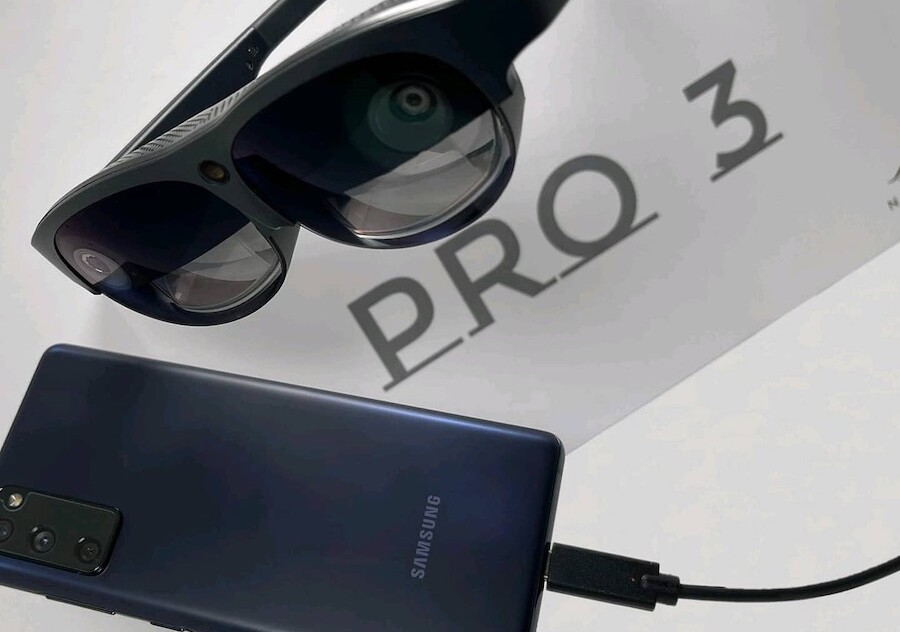
A life-changing experience for veterans losing their sight
Greget chose Samsung to be the “brains and compute pack of the smart glasses device” because Samsung “has the best smart devices on the planet, and a seamless user experience.”
“Not only are these powerful, cutting-edge devices, but they’re intuitive and easy to use, which is important for our customer. If you’re a veteran with low vision, you’re often already frustrated with life’s challenges, so having something that’s really, really easy to use is critical.”
Each Pro3 device ships with a Samsung Galaxy S21 or S22 smartphone, with the NuEyes patented software app already installed — so the solution is ready to go out of the box. But rather than selling directly to end users, NuEyes distributes the devices through the VA, where retina specialists and occupational therapists help veterans learn how to use their new accessibility tool.
“It’s purposefully a very hand-holding experience,” says Greget. “Not only because the users have low vision, but because this is the care they deserve. Our goal is to enable vets to regain their independence, so our local reps work closely with the VA to make sure the product works well for each user.”
New use cases for NuEyes
Since NuEyes went to market, leaders from various industries have inquired about using the technology for their businesses, but until recently, the company exclusively focused on low vision. That changed during the pandemic, and while under lockdown, Greget worked with NuEyes’ President of Operations Regina Chatman to map out new use cases for their technology.
Improve the patient experience with mobile
From check-in to remote monitoring, get your free guide to elevating care with mobile technology. Download Now
“Over the past few years, we’ve launched solutions for things like remote medicine or remote assistance,” says Greget. “We’re working with medical device companies like Medtronic to provide 3D step-by-step directions for users. And most recently, we worked with Dolphin Medical Imaging to create a wireless ultrasound probe, powered by Samsung devices, that will help practitioners with point-of-care diagnostics and improve bedside care.”
Still, for Greget and Chatman, helping veterans is still the most rewarding part of the job. “When I was in my garage in 2013, trying to get this concept to work and failing somewhat miserably, my goal was to empower veterans with low vision. Three years later, I watched a woman who hadn’t played piano in 10 years put on our product and start playing in 10 minutes. She looked over at me and said, ‘This gives me so much power.’ I knew then that our technology could change lives. And with the Pro3 glasses and Samsung smartphones, veterans will be able to do even more things they haven’t done in years.”
Discover solutions and best practices that transform remote patient monitoring and improve health outcomes. And see how Samsung healthcare solutions can help elevate the patient experience, streamline clinical communications and vividly bring your brand to life.
